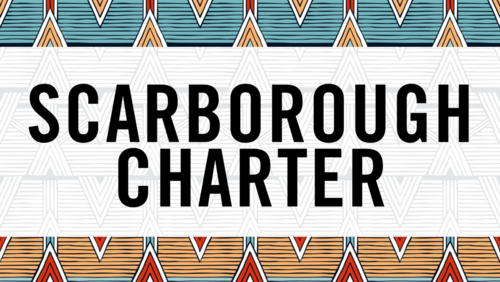
Waterloo signs on to Scarborough Charter on Anti-Black Racism and Black Inclusion in Canadian Higher Education
The University remains committed to removing systemic barriers to equity and inclusion

The University remains committed to removing systemic barriers to equity and inclusion
By Tracelyn Cornelius University RelationsThe University of Waterloo is pleased to join more than 40 other institutions of higher learning in becoming a signatory to the Scarborough Charter on Anti-Black Racism and Black Inclusion in Canadian Higher Education. The virtual signing ceremony takes place on Thursday, November 18, 2021, from 3 p.m. to 4 p.m. ET.
More than 3,000 representatives from higher education institutions in Canada assembled in 2020, for the National Dialogues and Action for Inclusive Higher Education and Communities. This forum resulted in the development of the Scarborough Charter on Anti-Black Racism and Black Inclusion in Canadian Higher Education: Principles, Actions, and Accountabilities.
“By providing a unified framework for confronting Anti-Black racism within higher education institutions in Canada, the Scarborough Charter complements cross-campus anti-Black racism initiatives being developed and implemented at the University of Waterloo,” said Vivek Goel, University President and Vice-Chancellor.”
“Through the Scarborough Charter, we are honouring our commitment to making unbiased choices and being anti-racist in all aspects of our lives, President Goel said. “We are taking coordinated actions to dismantle systems that perpetuate racial discrimination and build a more inclusive and equitable society.”

As part of the University’s commitment to remove systemic barriers to equity and inclusion, for members of the Black community, the institution recently announced a cluster-hire initiative to appoint 10 Black tenure-track and tenured professors, who will contribute to Waterloo’s goal of nurturing a culture of equity, diversity, and inclusivity, through increased representation of Black peoples.
“The University of Waterloo remains committed to creating a sustainable and supportive environment for our community,” said James Rush, Vice-President, Academic & Provost. “These initiatives are important steps to accelerating the progression of increased Black representation and inclusion across the University.”
Some of the other initiatives implemented to help address racism and support inclusivity, include the recent appointment of Professor Christopher Taylor, equity strategist and anti-racism advisor, as Associate Vice-President of the newly formed Office of Equity, Diversity, Inclusion and Anti-racism, and the offering of two Black Studies diploma programs, through the Faculty of Arts. Both programs, developed by members of the Black Faculty Collective, under the leadership of Professor Vershawn (dr.vay) Young, and with campus-wide consultations, will be offered in fall 2022.
“While Waterloo is making significant strides towards developing and maintaining a diverse, inclusive and equitable culture, we must continue to fast-track concrete, sustainable actions to combat anti-Black racism and advance inclusivity on our campuses,” Christopher Taylor said.

Read more
Waterloo plans to hire more Indigenous faculty, Black faculty through cluster hiring

Read more
Waterloo prioritizing equity and anti-racism and new and future academic offerings

Read more
President announces initial eight commitments following weeks of consultation
The University of Waterloo acknowledges that much of our work takes place on the traditional territory of the Neutral, Anishinaabeg, and Haudenosaunee peoples. Our main campus is situated on the Haldimand Tract, the land granted to the Six Nations that includes six miles on each side of the Grand River. Our active work toward reconciliation takes place across our campuses through research, learning, teaching, and community building, and is co-ordinated within the Office of Indigenous Relations.